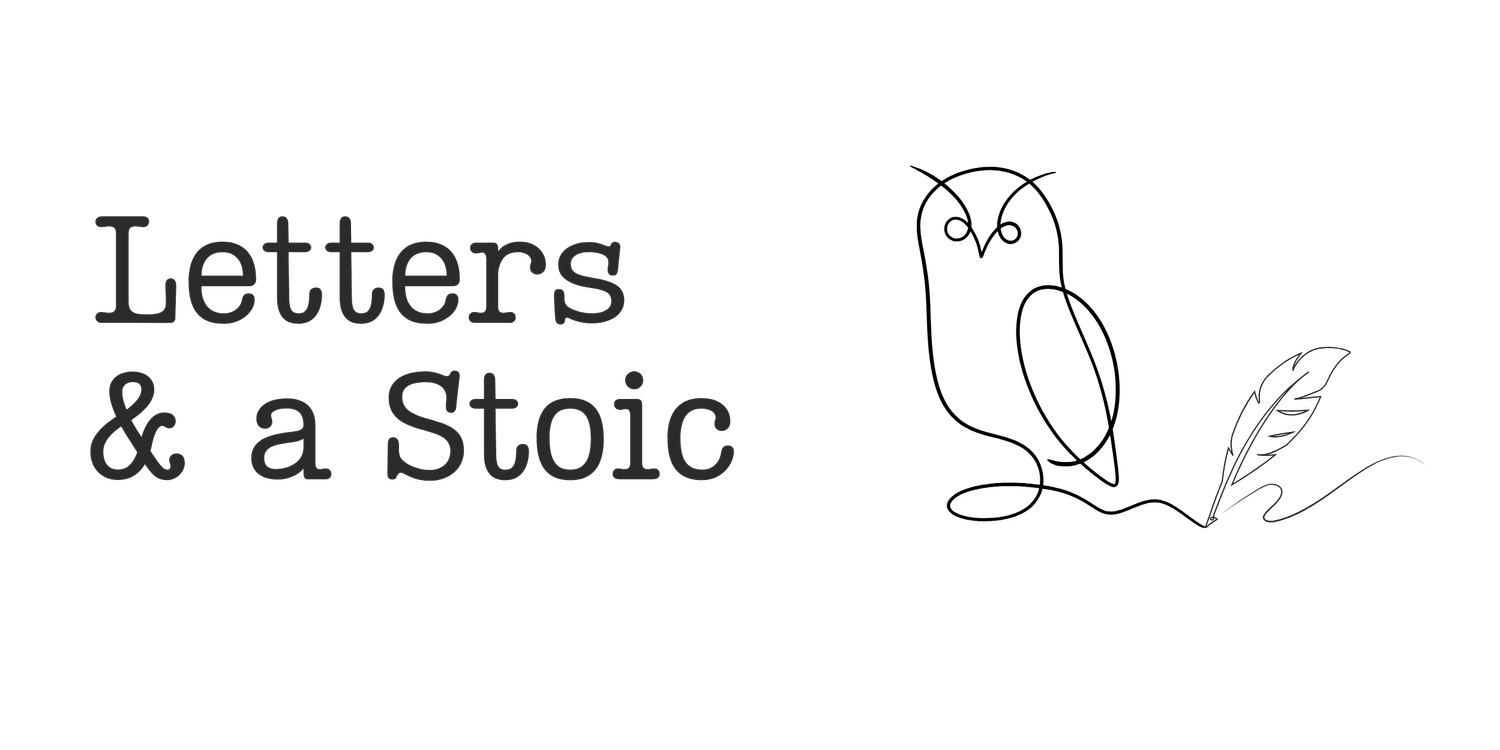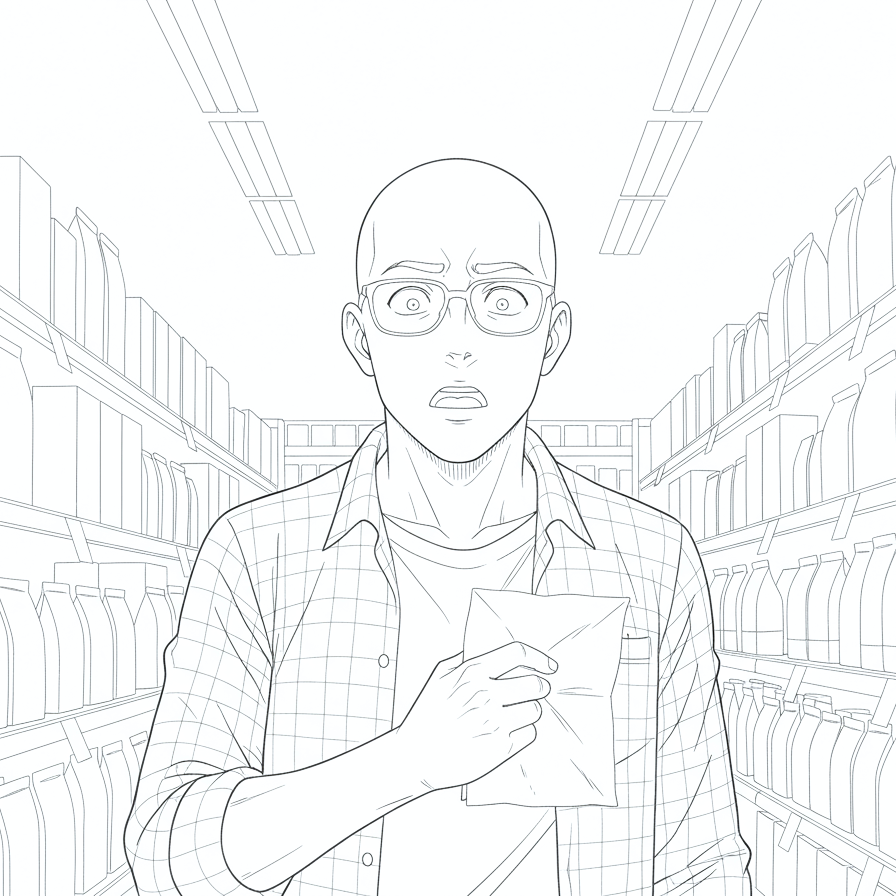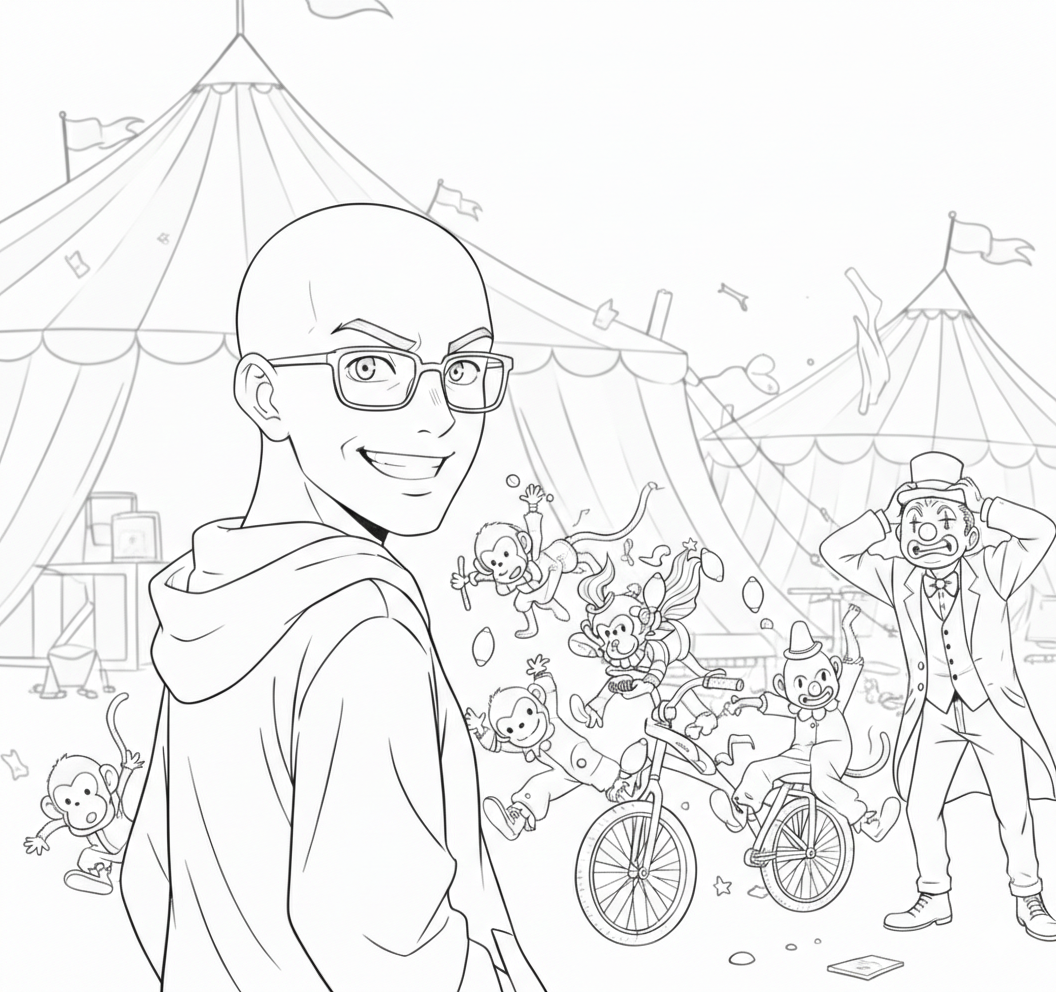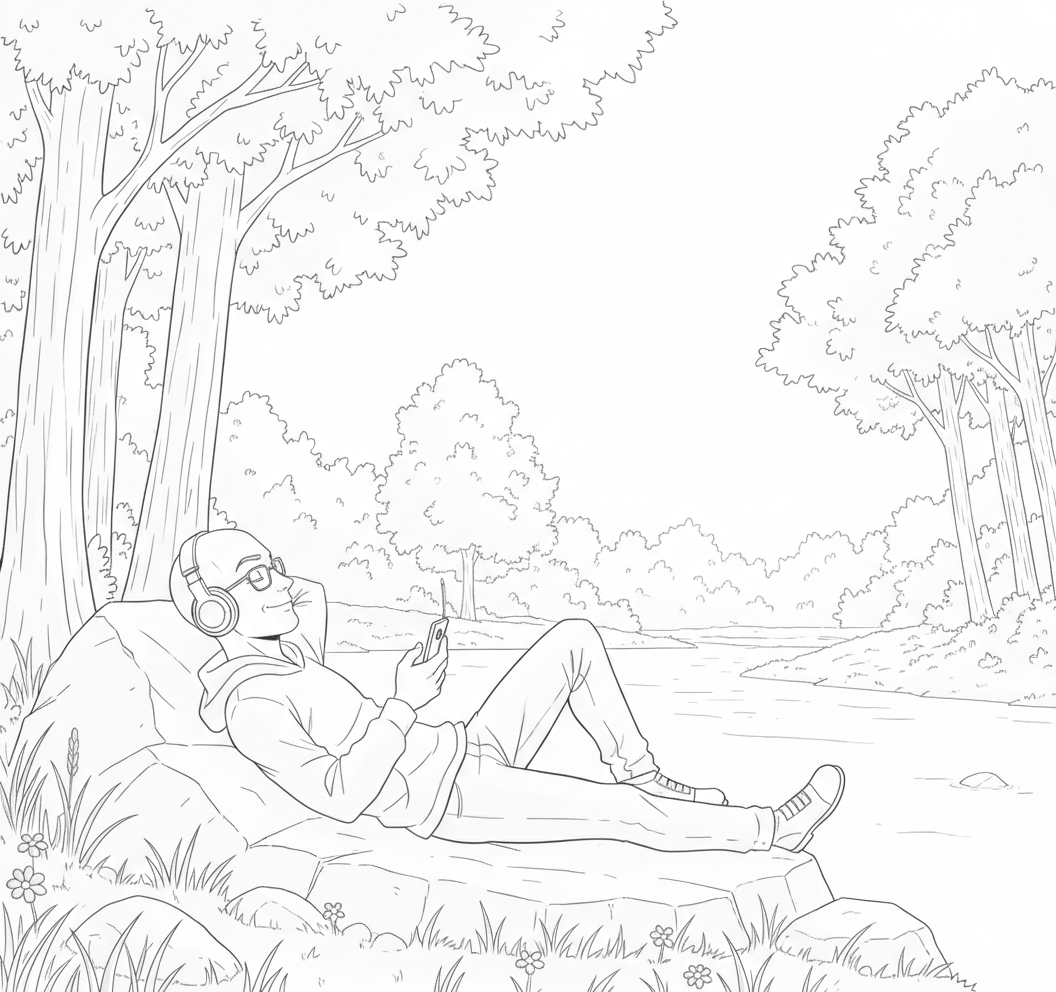Choice Paralysis
Dear reader,
This week…. has been a week, and I need to swallow the medicine in this letter.
We are swimming in a vast river of "everything everywhere all of the time" information.
The constant exposure to endless options and inputs creates something known as choice paralysis – a state where the abundance of possibilities leads to decision fatigue and ultimately, no decision at all.
The more options we have, the more difficult choosing becomes, and the less satisfied we tend to feel with our eventual choice.
Think about the last time you opened a streaming service to watch something. Did you spend more time scrolling through options than actually watching?
This happens to me regularly.
There’s a 1984 film called Moscow on the Hudson, starring Robin Williams.
In one of the scenes, his character Vladimir Ivanoff — a Russian musician who has just defected to the United States — experiences cognitive overwhelm from choice paralysis in an American supermarket. Vladimir is trying to buy coffee and finds himself confronted by an entire aisle filled with dozens of different brands and varieties. More kinds of coffee than he’s ever seen in his entire life, having come from the Soviet Union where scarcity and limited choice were the norm at that time.
He becomes completely overwhelmed by the abundance and he stands frozen, unable to make a decision. Eventually, he suffers a panic attack and collapses in the aisle.
This is a rather extreme example, but it is choice paralysis in action.
As we are exposed to more and more information that we feel we need to process and make choices about, the more our mental energy depletes.
We begin defaulting to what's easy for us rather than what's best for us.
We stay awake and watch movies when we know we should be sleeping
We order takeaway instead of cooking a nutritious meal
We scroll mindlessly through social media instead of reading that book we've been meaning to start
We might even say yes to commitments we should decline because refusing when we’re depleted requires more mental effort than saying yes.
But what if we had a filter – a compass - like I mentioned in my first letter – to help us navigate the overabundance of externals?
The Stoic Virtues as Decision Filters
The four Stoic virtues provide a practical framework for cutting through choice paralysis and making clear decisions:
Wisdom (Sophia): Seeing the situation clearly and choosing what truly matters. When overwhelmed by options, ask: "What would a wise person choose here?" This question helps you distinguish between what's genuinely important and what's merely attractive.
Justice (Dikaiosyne): Making choices that honour your responsibilities to others. Filter decisions by asking: "Does this option align with my duties and treat others fairly?" This removes choices that serve only ourselves at others' expense.
Courage (Andreia): Choosing what's right over what's easy. When deciding, ask yourself: "Am I avoiding this option simply because it's difficult or uncomfortable?" This helps you identify when fear, not reason, is driving your indecision.
Temperance (Sophrosyne): Exercising self-restraint and recognising when enough is enough. Before committing, ask: "Is this a genuine need, or am I being driven by impulse or the illusion that more is always better?" This filters out choices driven by excess or momentary desire.
These four questions transform the virtues into a decision-making compass.
Rather than getting lost in endless possibilities, you can quickly eliminate the options that fail these tests, leaving you with less choices, but choices that fully align with what you truly value.
Practical Application
Try creating a personal decision framework based on these virtues. Don’t hold it in your mind. Write it down.
When faced with a significant choice, run it through these four filters:
What option represents the wisest long-term decision?
Which choice is most just and considerate of others?
Am I avoiding any option out of fear rather than reason?
Which option represents a temperate middle path between extremes?
With practice, this can become instinctive. The framework turns from a conscious exercise into second nature, cutting through noise, information overload and decision fatigue and helping you maintain clarity even when swimming in that overwhelming river of information.
Marcus Aurelius wrote: "You have power over your mind - not outside events. Realise this, and you will find strength."
In a world designed to overwhelm us with choices, reclaiming the power to choose deliberately might be the most valuable skill we can develop.
What decision are you currently paralysed by?
Try applying these Stoic filters to thst and observe how they help you simplify your path forward.
It’s the second thing I’ll do after writing this. The first thing is to get a coffee.
With gratitude,
David
The Crossroads of Choice
At the crossroads between stimulus and response, choose wisdom over impulse. Notice, breathe, question. A Stoic practice for calmer days and kinder choices. Read “Letter II: The Crossroads of Choice” — Stoicism, Epictetus, mindfulness, self‑control.
Dear reader,
We meet countless small frictions each day. A cutting comment. A careless driver. A family jab that lands.
Here is the point: your first surge of emotion is potentially uncontrollable, but your next move is your choice.
Picture a short stretch of road between feeling and acting. A Y crossroads. One path runs downhill into reaction. The other climbs toward response.
I stand there on the regular. I often react, but I’m getting better at finding the pause and choosing to respond.
Today, hearing one human disrespect another, who wasn’t even in the room, simply for having a different sexual preference got to me. My eyes opened, anger built, fists clenched and words queued.
In that tiny pause before squeezing the verbal trigger, I saw the fork. I paused, took a breath and I decided to respond. I picked a question instead of assenting to anger and attacking with outrage and immediate judgement.
I asked “What makes you feel that way?”
The Trick
The tool is simple:
When you start to feel something with intensity. Pause.
Say “this is a surge of emotion”
Feel it, wait until it passes a little
Say “What is up to me here?”
“Make the best use of what is in your power, and take the rest as it happens. Some things are up to us and some things are not up to us. Our opinions are up to us, and our impulses, desires, aversions—in short, whatever is our own doing.” — Epictetus
Try this today
Notice the body first. Tight chest. Hot face. Quick breath. Say, “this is a surge of emotion”(inside voice).
These words creates space.Pause and in the pause take three full breaths. In through the nose. Slow out-breath. Count them.
Ask yourself one orienting question: “What is mine to do here?”
Then do just that.
Progress, not perfection. Train the pause, and the pause will train you.
Thank you for reading
With gratitude,
David
Love is Universal
“We are members of one great body. Nature made us relatives when she begat us from the same materials and for the same destinies.” — Seneca, Letters to Lucilius
Not my circus, not my monkeys.
Not my Circus, Not my Monkeys. In a noisy world, choose no opinion for now. A Stoic guide to guarding attention, filtering what’s in your control, and saving energy for what’s yours to steer.
Dear reader,
The world is noisy. Teams, tribes, likes, shorts and clickbait.
1.Folks want you to pick a side.
2.The algorithm wants a reaction.
You don’t owe either one anything, and you don’t have to decide right away.
Marcus Aurelius learned not to be pulled into the crowd mentality, not to be swept away by the mob.
He reminds us of a simple freedom: you can choose to have no opinion, for now.
This is not silence forever.
It is a short pause that protects your peace when something isn’t yours to steer.
He said;
“You always own the option of having no opinion. There is no need to get worked up or to trouble your soul about things you can’t control… Leave them alone.”
Two teachings. One move.
- Do not get immediately swept into picking one side over another
- Do not join every argument
A lot of the time neutrality is not apathy. It is discipline.
It gives you a little space inside, and in that space you can choose what deserves your attention and what can pass like weather.
Not my circus, not my monkeys
I heard this phrase from a Tim Ferris podcast. It’s a Polish proverb and it fits Stoicism well.
Think of it as the Control Filter in plain language.
Before you jump in, ask three questions:
- Is this within my control?
- Is this my role or duty?
- Is this my circle of competence?
If the answer is yes, engage with virtue.
If the answer is no, let it go. Not my circus. Not my my monkeys.
Save your energy for what is clearly yours.
A small scene:
You open your phone. A scandal is trending. Opinions stack up. It feels like choosing a side will give you control.
Pause.
Ask: What, here, is mine?
- A duty to someone in your care? Maybe.
- A vote or a civic step? Perhaps.
- A hot take to feed an algorithm? Probably not.
Put the phone away.
- Walk with someone who matters
- Return to your craft
- Make the decision you’ve been avoiding
The world will stay loud, but act consciously, and do the next meaningful thing and your day will becomes quieter and more deliberate.
Guardrails - think about this
- Who wants your outrage, your attention, and why?
- If it’s not yours, let it go.
- If it is, choose the stance. Act with wisdom, justice, courage, or temperance
- or step aside.
Close the loop. Use the saved energy for one concrete action now.
Remember: you have agency. If it's not up to you, you can choose not to engage.
Not your circus, not your monkeys.
Thank you for reading
With gratitude,
David
Rivers
In an information‑rich world, step out of the river. A Stoic guide to reclaim attention, build a compass, and choose your response with agency and calm.
Dear reader,
Welcome to Letters & a Stoic.
I'm David Patrick Brady, a husband, a father of three, a generalist, and a Stoic. This is my first letter, and hopefully the beginning of a long correspondence on practical Stoic wisdom for the modern state of play.
By "the modern state of play", I'm referring to the current circumstances, conditions, and challenges we face. It's our zeitgeist—the defining spirit of our present moment with its unique tensions and opportunities.
And our modern state of play, at least where I'm from, has a tendency be information rich while, too often, being genuine human connection poor.
There is a vast river of “everything everywhere all of the time” information that we are immersed in and the longer we swim in it the harder it becomes to stay afloat.
On the plus side, if we become conscious that we're in a river and that we're swimming we have options.
When we get tired swimming, or better still, before that, we can angle for the shore and take a break to recover before we dive in again.
And we should because even if the river is bringing us somewhere we need to go, we won't get there if we get tired and sink.
The shore is where we can consciously connect with other people too. It's where we listen, feel, play, eat, laugh, love and sleep.
It's down time.
Time where we can process, think, reflect on the journey, look over the river, see other folks swim by and watch the boats meandering along.
Hold that thought.
There are boats.
Why am I still swimming?
Before I came across Stoicism I just kept swimming, and I was getting tired.
I found stoicism as I was struggling to get to the shore in the form of a book called “A guide to the good life” by William B Irvine.
It almost floated by but, with the thought “Good life sounds good” I grabbed it.
I sat by the bank I read it from cover to cover and as I got to the end I found myself with a compass in hand and everything got a little bit simpler.
With the compass I was able to pick a direction, and since then I've managed to construct a raft and an oar and I'm filling out my map with the help of others. My journal maps the dangers I've faced.
What’s written in there reminds me of those dangers and with it, I can choose to avoid them in the future.
I have a good sense of where I am in any given moment
And I know that I can choose to float, take a swim, berth my raft or row at any time.
And in this moment I'm choosing to row.
As well as giving me direction, Stoicism has become for me, a filter through which I can maintain agency over what I choose to let influence me and how I choose to respond.
Most of the time, this Stoic filter catches the informational chaff and keeps me conscious in the moment.
In the times my Stoic filter doesn’t engage I like remember a quote from the fictional Stoic “Robert McCall”, played by Denzel Washington in the Equalizer. (great movie)
Making progress in anything virtuous is winning at life.
Ok, Every letter should have something for you.
You have agency over you. You can choose to create or adjust your own filter. What you focus on determines what you notice in the world around you and to some extent what you don’t notice.
Consider how, what's important to you in this moment filters your experiences. Your mind naturally seeks patterns that align with your current concerns and interests.
Very small example. We bought a car with seven seats recently. Before that I would never have looked twice at a seven seater. Now I see them everywhere. I'm sure they were there before but I was unaware.
This selective attention is not just about cars - it applies to everything in life. The beliefs, values and priorities you hold determine what you perceive or judge to be significant, good or bad.
You can backtrack this. By becoming aware of what you perceive or judge to be significant, good or bad you can question why and gain insight into your beliefs, values and the reasons why you prioritise the things you prioritise.
I hypothesize that, until you question your values and beliefs and accept them, they aren’t yours.
Most of what happens in reality isn’t within your control but how you interpret those happenings and how you choose to respond. That is in your control.
"Make the best use of what is in your power, and take the rest as it happens. Some things are up to us and some things are not up to us. Our opinions are up to us, and our impulses, desires, aversions—in short, whatever is our own doing. Our bodies are not up to us, nor are our possessions, our reputations, or our public offices, or, that is, whatever is not our own doing." - Epictetus
Remember. You have Agency.
Thank you for reading
With gratitude,
David
ps. Nothing to do with Stoicism but i picked the name of this letter because I remembered this dance track







